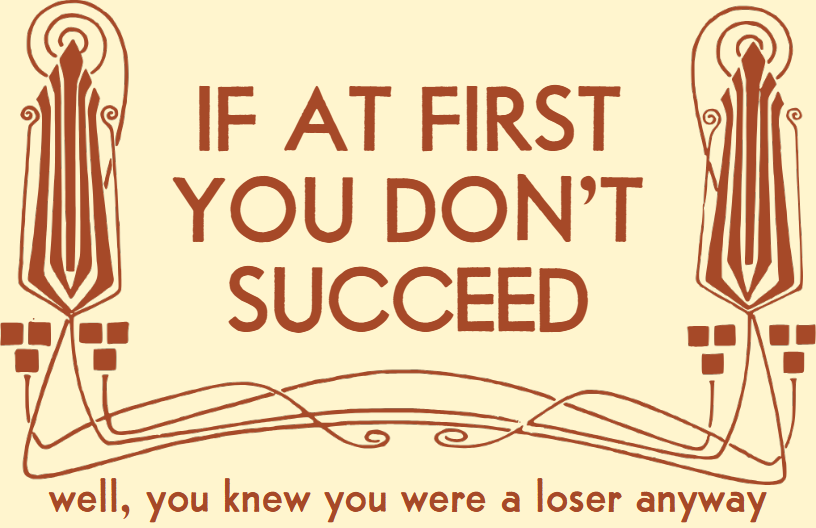LETTER TO THE EDITOR.
Sir: I was walking on Butler Street this morning when, quite suddenly and without any warning that I had noticed, my phone screen went blank.
This was the most appalling catastrophe I could remember, although I couldn’t remember much because how could I without my phone? Suddenly the familiar real world, the world I live in every day through my phone screen, was snatched away from me and extinguished, and in place of the rational digital universe that makes sense to me, I was plunged into a nightmare realm cobbled together from primitive material parts. Human-like creatures made of some sort of meat-like substance were marching up and down the sidewalk, some rationally gazing into phone screens, but others staring straight ahead of them like beasts, as though navigating in this surreal world of flesh and dirt could be accomplished with the eyes alone, without the assistance of Gemini or Siri. Most horrifying of all, some of them appeared to be engaging in unmediated conversation, mouth to ear, without the interposition of cameras and microphones.
What a dreadful state of things! I saw colors and heard frequencies the human mind was never meant to process. Above all, the mad world I fell into was appallingly huge, with a hugeness that could never be compressed into the sane dimensions of a phone. I felt cast adrift on some kind of body of water so enormous that one could not even see the other side of it, if such a thing were possible.
Now, my terror was brief, as moments later my phone started up again, and a reassuring message appeared on the screen to say that my operating system had been updated.
But what if it had been a real failure? What if the battery had discharged completely? What if one of the internal components had failed? The universe would have been destroyed at that moment, and I would have been forced back to the animal state of poking my way through a world of material objects by instinct!
Clearly there is a weak spot in the fabric of our reality that requires reinforcement. Immediate action is essential if we are to prevent tragedy. First, and most importantly, we must take steps to make sure phone screens are no longer capable of going blank. Even the thirty seconds during which my screen was black plunged me into depths of terror that must have taken years off my life. But second, while we are strengthening our electronic infrastructure. some temporary measures must be taken. I suggest that, if it is possible for government agents to venture into the world of the material without losing their sanity, the government should undertake to drape the most terror-inspiring sights, such as the uncanny bipedal meat agglomerations, with some kind of material popover, so that they cannot be seen without deliberately tapping on them. It may require effort, but think of the consequences if the effort is not made! Any mass-blanking event in our phone population would result in a epidemic of insanity, and insanity is fun only when it is experienced through social media. We must take steps now to prevent good sane Americans from falling out of the real world into the material world, and we must do it before the insidious forces of materiality have a chance to sneak up on us. —Sincerely, Japheth22843, Facebook.
Advertisement.
INSPIRATIONAL POSTER.
IN RELIGIOUS NEWS.
THE VOYNICH MANUSCRIPT: NOW EVEN MORE FIGURED OUT.

Leonardo and Voynich Manuscript. Which is which? It’s hard to tell!
Since then, the reviews have multiplied further, with the result that the mystery is even more figured out. As of last night, there were 109 reviews at the Internet Archive page. The great majority of them confidently present explanations of the text of the Voynich Manuscript, and a significant number advance our scientific knowledge in other fields as well.
For example, here are some things you didn’t know about botany.
The fauna [by which the reviewer seems to mean “flora”] seems kind of alien because Grape Vines in particular have a history of bringing in the fauna around them to better accommodate their surroundings if they are left untamed, in other words there will be similar shapes and structure of the leaves and roots and also the vining capabilities amongst the complimentary plants that come with them. They learn to spread, climb, and grow in similar patterns including in rows and are capable of changing or variegating the other plants that grow with them.
Another reviewer, whose review is headed simply “Sad,” finds that the manuscript is an illustrated historical document.
Subject: Sad
This book is about a village of innocence taken away by soldiers with weapons like crossbows who came in bounded these poor females impregnated them destroyed their lives and then sadly the creator didn’t live to finish the book rip beautiful souls forever in blessed peace
Apparently the creator of the manuscript was furiously scribbling an illustrated record while the sacking of the village was going on, but was interrupted by massacre—the victorious pillagers, however, taking care to preserve what had been written so far.
Meanwhile, a reviewer named Our Cloaked Unseen World has figured out what the book is all about, and his evidence is undeniable.
Subject: I figured out what this book is all about & My Evidence is Undeniable
Mysterious Voynich Manuscript Decoded by me Evidence=Why is Patent Technology by 2inventors & 2Different eras Nikola Tesla& Mysterious Hyperspace Inventor St Clair JohnQ doing on same page? & Nature Image off My recording Closely matches Nikola Patent on that page & Nikola “There is no subject more captivating, more worthy of study, than nature. To understand this great mechanism, to discover the forces which are active,& the laws which govern them, is the highest aim of the intellect of man.”
Crazy how Academia and Super computers could not figure this book out but I did just from one page I have the key that unlocks the whole thing pretty much in this one social media post of mine & Here is the answer that should put me down in the History books as solving this. It is my original find & its hard to Deny.
You may go to the Internet Archive page if you wish to see the link to the social-media post. You may be shocked to discover that the link leads to Truth Social.
Another reviewer posts under the subject “Fascinating but not much of a mystery to me”:
I flipped through each page as if reading it and couldn’t help but feel that book was familiar to me. The structure of the handwriting, the drawings, the shape of the letters…then it hit me.
This book isn’t fake, it’s not chinese, and it’s not islamic. This is what we would call a “lost” notebook or journal of a young Leonardo Da Vinci. Before you dismiss me, hear me out…
And so on. Now that our reviewer points it out, you are doubtless thinking that the resemblance between the art of the Voynich Manuscript and Leonardo’s earlier paintings is striking.
A reviewer who is a student of comparative religion explains how Eastern religions work, which is relevant to his interpretation of the manuscript:
It’s a little bit religious and astronomical, but it’s main subject is biology. There are numerous ancient books in eastern world that mixing religion and biology, also they mixed religion and astronomy. So my opinion is that the book is describing plant’s biology with many exemplifications and associating them with religion and astronomy, and totalizes them with the help of woman characters to understand them.
From a different religious perspective, however, the book is a Mid-Evil Witch Grimoire.
Subject: It’s a Mid-Evil Witch Grimoire
I just skimmed through the manuscript and in my opinion I believe as a Pagan & a practicing Witch that this is a Witches Grimoire, either for personal use or within a Coven. And I also believe the words are written using some form of the Witch’s alphabet.
Are you a good witch or a bad witch? Well, I’d say sort of mid-evil.
Finally, we should not neglect the one comment that links to a professionally designed Web site where the decipherer’s claims are presented with slick graphics.
You may find the valid translation work on the Voynich Manuscript in the web page given below. www.turkicresearch.com. This accurate study has been done by Mr. Ahmet Ardic and the ATA Team and the detailed information you may find therein. The decipherment of any sort is not required as it seems basically but rather a translation (interpretation) of the north( north east) Khazarian Turkic language of the medieval ages may be required understandably.
The site is dedicated to work on the Voynich Manuscript by Ahmet Ardic, and although the design is slick, we can take a guess at the attitude of the scholar by noting that the first thing we see on his slider after his name is a quotation from Rumi:
Rûmî said that “You can beat forty scholars with one fact, but you can’t beat one idiot with forty facts.” Mevlânâ Celâleddîn-i Rûmî (1207-1273).
That our scholar all but calls his opponents idiots (“But I didn’t say that. Rumi said that.”) suggests that we are dealing with crank linguistics. A glance at the many interpretations offered shows us a crank in full Barry Fell mode, confidently spinning out the meaning of an entire page from two or three allegedly deciphered words. A linguist who cares about things like grammar and repeatability would probably not accept this kind of work. But in less scientifically enlightened nations, such as Turkey or the United States, this is the approach to science that qualifies you for a government position. We predict a bright future for Mr. Ardic. But a word of advice: he should reconsider the design of his site. It’s too professional for government or academic work. There are still standards to be upheld.
INSPIRATIONAL POSTER.
Advertisement.
THEOLOGY FOR THE TWENTY-FIRST CENTURY.
Clearly the Swedenborgians are only the vanguard of what will become the dominant trend in theology as our century progresses. The Anglicans will soon have an Archchatbot of Canterbury. The Vatican will adopt the new technology within a few years, and the next pope will have a name like code-pius-0013. The General Assembly of the Presbyterian Church (USA) will be replaced by a large language model, and no one will notice.
Thus progress marches forward in religion as in other human endeavors, and at last we begin to see the true meaning of the quotation from Swedenborg engraved over the entrance to the New Church in Pittsburgh: “Nunc licet intrare in arcana fidei”—“Now we may enter into the hidden things of the faith.”








